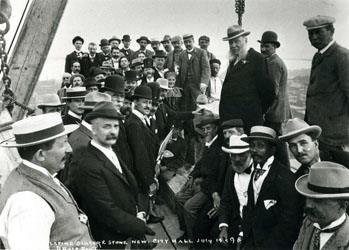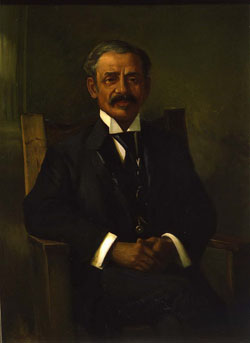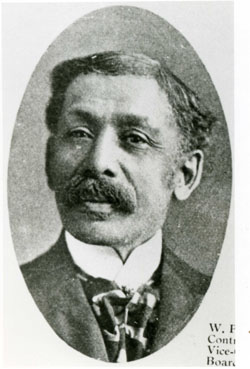This article is from our Toronto Feature series. Features from past programs are not updated.
This content is from a series created in partnership with Museum Services of the City of Toronto and Heritage Toronto. We gratefully acknowledge funding from the Ontario Ministry of Tourism, Culture and Sport, and the Department of Canadian Heritage.
"William Peyton Hubbard: Pioneering Black Politician"
The council chamber was packed at Old City Hall on the afternoon of 5 November 1913, with dignitaries, past and present mayors, and aldermen all gathered to celebrate the career of William Peyton Hubbard on the occasion of his retirement.
The Toronto-born son of a Virginian who had been freed from enslavement, Hubbard worked as a baker and cab driver until his 50s when a chance event--saving the life of newspaperman and politician George Brown — altered the course of his life. Encouraged by Brown to seek office, Hubbard became the city's first Black elected official. He served on city council from 1894 to 1908, and again in 1913, including a decade on the Board of Control. Having cultivated connections to the social establishment throughout his life, Hubbard achieved great success and the respect of his colleagues at a time when the Black community was barred from many Toronto establishments.
At his retirement ceremony, speeches praised the respected Conservative's many political accomplishments. A quiet and calm demeanour hid that he was a powerful public speaker who, with a reformer's zeal for accountability in government, would verbally lash any colleague on the floor of the council chamber if he had evidence of their misconduct. For his passionate eloquence, he was a favourite of local media eager for headlines and dubbed "the Cicero of the Council" by colleagues.
Championing the public ownership of utilities, he became an important ally of Sir Adam Beck, who made a surprise appearance at the retirement ceremony to praise Hubbard as indispensable to the establishment of Ontario's publicly owned power system.
He died on 13 April 1935, at the age of 93.

 Share on Facebook
Share on Facebook Share on X
Share on X Share by Email
Share by Email Share on Google Classroom
Share on Google Classroom





